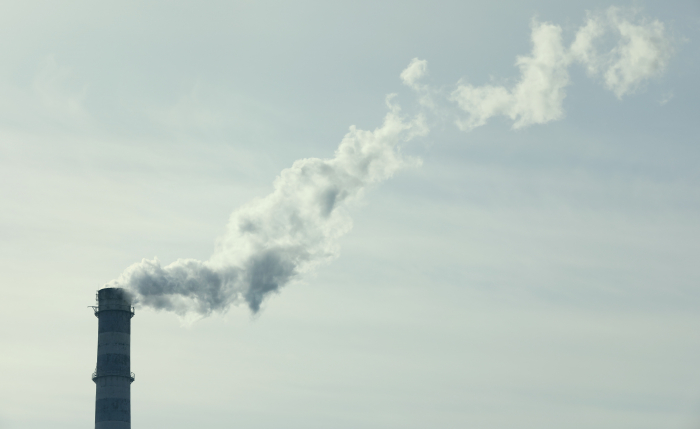
The increase in the price of carbon emission rights is dealing another blow to South Korean companies reeling from soaring raw materials and logistics costs. They are jittery about a further rise in their carbon permits under tighter emission standards.Last month, the country adopted a stricter emission goal, under which Korean companies are required to reduce greenhouse gas by 40% from 2018 levels by 2030. That means a cut in the allocated amount of carbon emissions per each company, forcing high emitters to buy carbon credits in trading markets.
Carbon credits are traded at 22,000 won ($18) per ton in South Korea, pulling back from this year's peak of 35,000 won touched in January. Compared with the year-earlier level of 18,000 won, the price is up 22%.A carbon credit is a permit that allows the company that holds it to emit a certain amount of carbon dioxide or other greenhouse gases. The price of carbon credits traded in the market changes in real time according to demand and supply.In 2021, the country's top 50 manufacturing companies by market value booked a combined 294.1 billion won ($242 million) in carbon liabilities, according to the regulatory Financial Supervisory Service on April 4. The liabilities refer to the provision they set aside to buy carbon permits to emit more greenhouse gas than allowed for those companies. Compared to 2020, the liabilities were down 58.6% from 466.3 billion won. But excluding the one-off provisions of 157.1 billion won put aside by Hyundai Steel Co. in relation to a power generator of its unit, the 2020 carbon liabilities in total would have stood at 309.1 billion won, little changed from the 2020 level.Among the Korean companies, carmaker Kia Corp. put aside the largest carbon liabilities of 119.1 billion won, followed by POSCO Co.'s 84.3 billion won and Samsung Electronics Co.'s 45 billion won.The carbon credit price is expected to rise further as the European Union announced a plan set to introduce the world's first carbon border tax next year. With the US trying to follow suit with a similar tax as a tool to advance climate goal, the tax will add to a tariff paid by Korean exporters. "It seems like we are finally receiving our carbon neutrality bills," said a Korean steel company executive. POSCO's employees at a blast furnaceDRASTIC REDUCTION GOALS
To meet the 2030 goals, Korean companies need to cut their emissions by 4.17% per year on average, more than twice the EU's 1.98%.Now the South Korean government is working to cut the allocated amount of annual emissions, applying to 650 companies, from the current 125,000 tons per company, or 2,500 tons per plant.Assuming that Korean companies maintain their annual emissions at the current levels, they may need to spend a combined 2.5 trillion won ($2 billion) a year to buy emission rights based on the current carbon credit price.As they are ramping up production to meet growing demand, the only option to comply with the stricter emission standards would be to buy carbon permits in the market until they develop low-carbon production technologies."If the demand for emission rights drives up the carbon credit price to the EU's level or around €100 per ton, Korean companies may have to pay several billions of dollars per year," said a business industry official.In South Korea, brokerage companies and individual investors are still banned from participating in the domestic carbon trading market.EFFORTS TO CUT EMISSIONSPOSCO topped the list of the country's high emitters among non-government companies, according to the Ministry of Environment. It emitted 75.7 million tons of carbon dioxide in 2020.Hyundai Steel Co. came second with 28.6 million tons, followed by Samsung Electronics with 12.4 million tons.POSCO, the world's sixth-largest steelmaker, is seeking to adopt a hydrogen-based, low-carbon steelmaking process in collaboration with Hancock Prospecting Pty Ltd., a leading Australian mining firm.As for airline companies, another high emitters, they are adding animal and plant fats to jet fuel to reduce their carbon footprint. The International Air Transport Association (IATA), a representative body for the airline industry, decided to replace part of aviation fuel with non-fossil fuel to cut carbon emissions by 65% by 2050. To do so, airlines are utilizing used animal and plant fats, cooking oil and sugar cane to produce alternatives to fossil fuels.By Kyung-Min Kangkkm1026@hankyung.comYeonhee Kim edited this article
Most Read